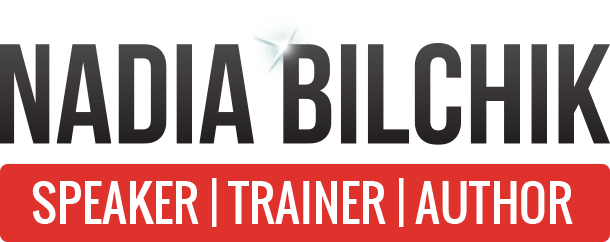Rapid transformation in a VUCA (volatile, uncertain, complex, ambiguous) world.
Resilience. Recalibration. Reassessment.
Sometimes we wish things could stay the same, but even the Ancient Greeks knew that change is, paradoxically, a constant in our lives. In fact, we are constantly confronting change, not just in catastrophic ways like meteors, climate change, or a pandemic. The key question is whether you find functioning in our volatile and uncertain times debilitating or energizing. It all depends on your reaction at the moment, your resilience, and your ability to reassess, recalibrate, and reset. This process takes time, thought, and honest reflection.
What is resilience?
The American Psychological Association defines it as the “process of adapting well in the face of adversity, trauma, tragedy, threats, or significant sources of stress.” It is the ability to adapt quickly to disruption, absorb stress, and to still maintain your ongoing commitments and operations in a way that will allow you to thrive. The first step begins with having the right mindset and attitude. That means the ability to reassess anything rapidly and everything that brought you to where you currently are, as well as the ability to explore and implement alternatives and repurpose your skills and assets.
Making the transition
My own experience in making the transition from an in-person to a hybrid world was surely an exercise in resilience. When the pandemic and its lockdowns hit in March of 2020, like everyone, I expected to be able to sit tight for a few weeks until life returned to “normal” and we could swiftly return to the usual ways of doing business. Now, even as elements of our beloved “in person” world returns, it is becoming increasingly clear that the old comfortable ways of doing business may never return and that a psychological reset and acceptance of a “new normal” is in order.
In my case, the initial stages of the pandemic felt like a reprise of my experience more than two decades earlier, when I gave up being a television personality and a very successful media skills training business in my native South Africa to settle in Atlanta, where I found myself rebuilding a flourishing television and communications training career. But this time around, even as I contemplated the prospect of the fruits of more than 25 years of effort evaporating overnight, I committed myself to the new reality at Zoom speed.
In early March of 2020, After 23 years of building a global speaking career, I had built up momentum to where I was in demand and booked for a year’s worth of keynotes and workshops in Las Vegas, Las Angeles, and Los Cabos. That was before the emails started coming in, as thousands of dollars worth of bookings were postponed and canceled altogether. I found myself staring into a void, feeling the same sense of loss and anxiety I had when I left a highly successful and lucrative career in South Africa to settle in Atlanta.
My first reaction was anxiety and disbelief, somewhat tempered by the expectation that the lockdown would be temporary and my life would return to normal in three months. But meanwhile, I had to face the immediate challenge of what to do with myself and, just as important, how to generate some income in the interim.
Recalibration
For me, COVID triggered a reset that happened overnight and is still ongoing more than two years later. The next day, I discovered Zoom when a family friend said, “all you need is Zoom; we use it all the time.” What followed were lessons in using the platform, how to do breakout rooms and how to synch Zoom with outlook. As it happens, I had been thinking about going online years before but had never done it because I didn’t have the time. Now, facing the prospect of allowing a 35-year career to dwindle into nothing, I immediately threw all my experience, expertise, and resourcefulness into the new reality.
I have the advantage of a television background and have trained for many years to be in front of the camera. What I have managed to do is incorporate my 30 years of speaking and being on camera and create a methodology for getting comfortable in front of a camera. So, I was able to adapt my skills and knowledge to the virtual world. Within days I started making videos. And just one week later, I broadcasted a live stream interview on Facebook with my two brothers (Dr Anton and Dr Brian Bilchik) and sister (Dr Tanya Bilchik) on how they were responding to the COVID pandemic.
Reassessment
I also quickly discovered that establishing a virtual presence had a new set of demands. To deliver courses and keynotes on Presence and Presentation Skills, I had to adjust the way I taught to be impactful on all virtual platforms. I quickly discovered that when you are facilitating or presenting using any technology, you have to be proficient in it. What followed was a crash course, helped along by tech-savvy individuals. This included setting up a home studio equipped with professional studio lighting and a separate camera. In addition, I had to learn a whole new virtual vocabulary. Not to mention the different features of online platforms like Zoom, WebEx, Adobe Connect, Microsoft Teams, or Google Meet. All of which have a range of capabilities and participation tools. I also gradually transformed my home studio into a professional setting, complete with a professional microphone and camera.
People get stuck wanting to recreate what they had. In fact, for years, I tried to fill the gap of what I had given up in my journey from South Africa to Atlanta. Ultimately it is very freeing to let go of the belief that you have lost something and you need to create it in the same form. I will never have what I had. It is going to be different. I needed to mourn a speaking career in front of large crowds. But this allows me to do a webinar for 1,000 people worldwide. I have also developed an online program that is both highly effective and increasingly popular, and the invaluable expertise to train people on how to navigate and thrive in a hybrid world.
New Opportunities
As I navigated the challenges of responding to the shocks and consequences of the COVID-19 Pandemic, I also had the opportunity to interview many leaders who were successfully navigating new directions despite enormous challenges.
All emphasized that the time for caution is long past, and virtually every organization has been forced to adjust to the changes sweeping our world. If your blueprint stresses sticking to your time-tested strategies, there is a good chance you will be left in the dust by more nimble operators. It may be more comfortable but never shy away from reassessing reality. The key is to strike a balance.
Incorporating this strategy and mindset into your playbook should become an essential priority. The key is to permit yourself to reimagine previous expectations. The most important quality to hone to withstand change is simply the willingness to accept the ever-changing factors that make up reality and adjust accordingly.
This means having a purpose to build on. It is a personal and organizational truism, as expressed by Mark Dyne, one of the first investors in Skype and now a founding partner and the Chairman of Morpheus Ventures, Dyne, and his team serves as professional problem-solvers for businesses facing any number of complex situations, guiding the leaders through crises on any scale.
The shift
Dyne observed that for company leaders, the pandemic leveled the playing field, thrusting everyone into pivot mode and forcing them to find a way to make their companies virtual. Collectively, the business mindset shifted focus from growth and expansion to survival. While many could not withstand the societal transformations that accompanied the pandemic, a multitude of other businesses found both their footing and an expanded customer base when they shifted their operations online. The world changed, and the companies that changed with it not only survived but thrived.
Resilience is the process of adapting well in a volatile, uncertain, complex, and ambiguous (or VUCA) world.
When all other motivating factors and rewards have been removed from reach, and you’re left relying only on yourself and your inner strength to see things through, resilience keeps you going.
Resilience is that staying power that pushes people forward when things aren’t going well is a positive mindset. Too many people freeze when things go wrong, but struggle is a natural part of life. If we cannot readily accept any tribulation that comes our way, we will never understand the full scope of our fortunes when events reverse course for the better.
Accordingly, here are my three tips for these uncertain times:
o Remain positive, and remember that you’re a passionate and enthusiastic operator. Never give up on your dream. You alone hold the key to unlocking your dream, and you deserve to succeed.
o Invest in the people you work and do business with. In times like this, empathy goes a long way because no one has been untouched by tragedy.
o Keep your lines of communication wide open and work on cultivating your personal and business networks both in-person and online. You will never regret developing a personal relationship with someone who may end up offering you support or a warning when you need it most.



